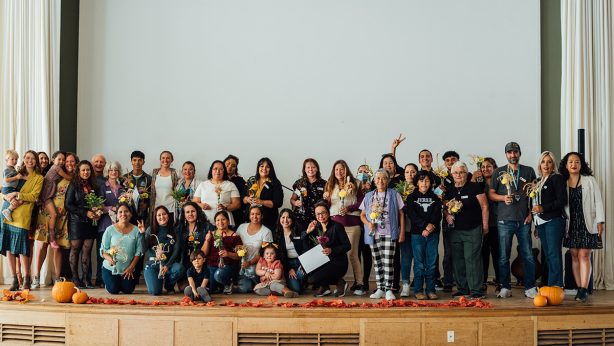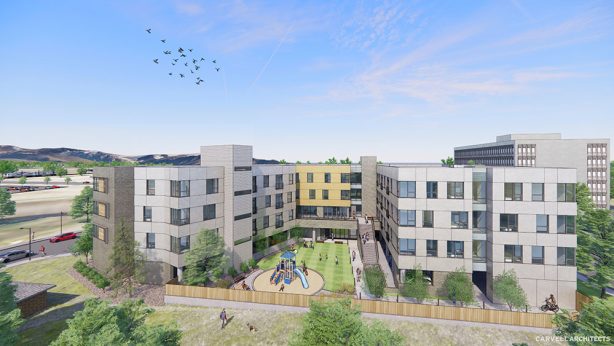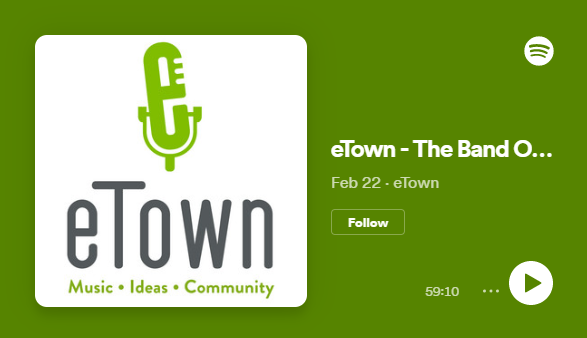Local Nonprofit Founded During Colorado’s Historic Drought Ensures Sustainable Water Usage Through Education
The scarcity of water in the Western States has always been a defining characteristic of this broad region stretching from the Great Plains to the California coast. The arid nature of the Western States places incredible importance upon the conservation of this precious resource, and was brought to the forefront in the early 2000’s amidst Colorado’s most severe drought on record. In response to the drought, state lawmakers saw the need for an independent entity to find solutions to address our state’s water problems, as well as the opportunity to educate policy makers, private businesses and the general public about these issues. In 2002, Water Education Colorado was founded to ensure the sustainable use of water in the state through education and community engagement.
Water Education Colorado’s work can be broken down into two primary focus areas. The first is researching and writing about water issues. The Headwaters magazine is Water Education Colorado’s flagship publication. Taking its name from the fact that Colorado is a major headwater state for the Southwest, nearly 50 issues have been published since the nonprofit was formed in the early 2000s.
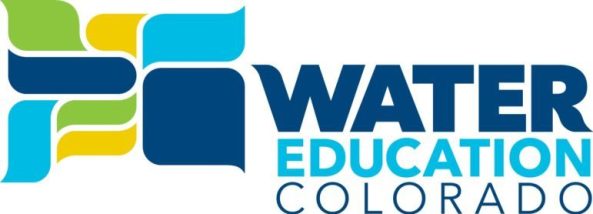
The most recent edition: What Will A Hotter Future Mean for Water? centered on the effect of climate change on Colorado’s water supply. This specific issue of Headwaters outlines how a warming climate will disrupt Colorado’s water supply, and how climate change is already gravely affecting farmers, water utility companies and even recreational rafting companies. Past issues of the magazine cover a myriad of water-related topics, including water use in the real estate development sector, the viability of water reuse technology and strategies for making rivers healthier.
Their second focus is education. Water Education Colorado was formed not only to collect information, but to synthesize and disseminate that knowledge to the public. For the average citizen interested in educating themselves on water topics specific to Colorado, there are the Citizen’s Guides. Each guide breaks down a specific water topic, such as Colorado Water Law, which is a complex and nuanced subject. The guides are then created to make these topics decipherable and more easily understood for nonprofessionals.
The organization also offers educational programs providing professional development courses for non-water professionals. The Water Fluency program helps professionals charged with making decisions that impact the state’s water supply – but don’t have a formal education on the subject – develop tools for navigating water policy and management.
Water Education Colorado also runs an educational blog, a community platform for sharing information, news and viewpoints on water issues around the state. The blog features content from both experts and guest contributors alike. The nonprofit also produces a periodic radio show called “Connecting the Drops”. The podcast is a collaboration between Water Education Colorado and community radio stations KGNU, KDNK and KRCC and reaches up to 250,000 listeners per show.
Urban Land Conservancy (ULC) met with Scott Williamson during our weekly staff meeting earlier this month. Williamson is Water Education Colorado’s Education and Outreach Coordinator, and joined the team this past January. During his visit, Williamson explained the different arms of the organization and how they work in collaboration to further the organization’s mission.
Williamson also spoke to the status of the Colorado River. “The Colorado”, as it is sometimes referred, is a 1,450 miles long body of water stretching from the Rocky Mountains to the Gulf of California, traveling through seven U.S. states and Mexico. It is a vital source of water for 40 million people. The Colorado also flows through some of the most arid parts of the United States. During a recent prolonged drought period, believed to be the worst in 1,200 years, has severely impacted Lake Powell and Lake Mead, two of the key reservoirs along the river. Williamson explained that although Colorado is currently drought free following many years of near constant drought, a single wet spring is not enough to fully replenish groundwater and reservoir levels.
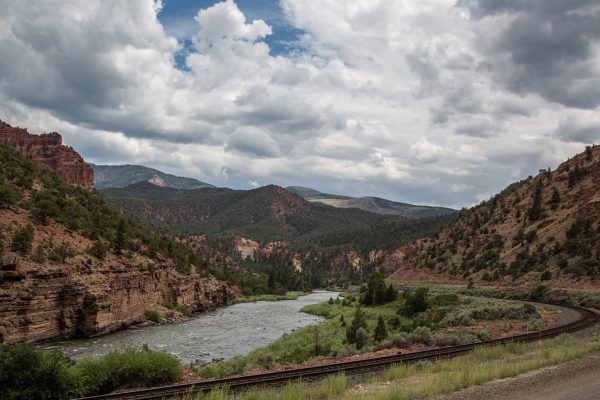
Climate change will continue to exacerbate these issues directly impacting the Colorado River. Greenhouse gases, the family of gases that create an insulation effect on the Earth’s atmosphere, will lead to increased temperatures that will almost certainly impact runoff output, snowpack, forest fires, droughts and floods. By the year 2012, Colorado’s average annual temperature had increased by 2 degrees Fahrenheit over a period of 30 years, and has only continued to rise since then. For the record, while it might sound minimal, 2 degrees is an incredibly significant increase in average temperature.
According to recent data, Colorado’s average temperature could rise between 2.5 to 5 degrees Fahrenheit by 2050. According to the National Climate Assessment, even if precipitation does not decrease, increased rates of evaporation due to higher temperatures would lead to a loss of water from plants and loss of soil moisture. Higher temperatures also lead to earlier snowmelt and a longer growing season, demanding more water from plants, which in the absence of water further dries soil. Projections by Colorado State University predict a 20 percent reduction in water flow from the Colorado by the end of the century.
Climate change is the largest, long term threat to water security in Colorado and the nearby states dependent upon nearby rivers and streams for their crucial water supply. The issue is broad and will not be solved by a single catchall solution. However, as Jayla Poppleton, the Executive Director of Water Education Colorado said in the most recent issue of Headwaters, “we don’t know what the future holds, but we’re going to keep doing the work that is ours to do.”
Earlier this year, Water Education Colorado moved their new office space to the Mountain View Nonprofit Tower. ULC is thrilled to have Water Education Colorado join our building as the latest mission minded tenant and we look forward to future partnership and collaboration together!

